Biodiesel Plant
Categories: Engineering Lab EquipmentThe use of renewable energy carriers in the mobility sector can happen by replacing fossil fuels. One option is biodiesel, which is obtained from vegetable oils. It is produced by adding methanol and...
Product
Description
The use of renewable energy carriers in the mobility sector can happen by replacing fossil fuels. One option is biodiesel, which is obtained from vegetable oils. It is produced by adding methanol and potassium hydroxide (as catalyst) and is a transesterification, a chemical equilibrium reaction. On a large industrial scale, production is carried out continuously in stirred tank reactors. This process is demonstrated on a small scale by the experimental plant.
The chemical reaction takes place at temperatures of around 60°C. The products leave the reactor after a predefined dwell time. The products are a two-phase mixture: A biodiesel-rich phase and a phase with by-products. The by-products are pumped out of the following phase separator. The options for the biodiesel-rich phase are: Return to the reactor, second transesterification stage, methanol recovery (distillation) and biodiesel washing (absorption).
Learning Objectives/Experiments
Production of biodiesel from vegetable oil
Influence of dwell time
Influence of temperature
Chemical transesterification
Phase separation in the gravity field
Distillation
Liquid-liquid extraction
Approach of a continuous process consisting of several basic operations
Specification
Chemical transesterification of vegetable oils
Two-stage, continuous process
Two heated stirred tank reactors for chemical transesterification
Two phase separators for separating products and by-products
Methanol recovery (distillation) to reduce the amount of methanol required
Biodiesel washing (absorption) to extract impurities from the biodiesel
Variation of process parameters to investigate the dependencies of biodiesel production
PLC for controlling the experimental plant
Touch panel for operating the PLC
Technical data
Tanks
stirred tank reactors: 2x 5L
storage tank (vegetable oil): 110L
storage tank (chemicals): 45L
product tank: 110L
by-product tank: 45L
methanol tank: 6L
phase separator/biodiesel washer: 3x 15L
Peristaltic pumps: max. 25L/h
Measuring ranges
temperature: 6x 0…100°C
pressure: 1x 0…6bar (abs.)
flow rate: 11x 0…30L/h
level:
3x 1…22cm
2x 1…29cm
230V, 50Hz, 1 phase
230V, 60Hz, 1 phase; 120V, 60Hz, 1 phase
quick overview :
The use of renewable energy carriers in the mobility sector can happen by replacing fossil fuels. One option is biodiesel, which is obtained from vegetable oils. It is produced by adding methanol and potassium hydroxide (as catalyst) and is a transesterification, a chemical equilibrium reaction. On a large industrial scale, production is carried out continuously in stirred tank reactors. This process is demonstrated on a small scale by the experimental plant.
The chemical reaction takes place at temperatures of around 60°C. The products leave the reactor after a predefined dwell time. The products are a two-phase mixture: A biodiesel-rich phase and a phase with by-products. The by-products are pumped out of the following phase separator. The options for the biodiesel-rich phase are: Return to the reactor, second transesterification stage, methanol recovery (distillation) and biodiesel washing (absorption).
Learning Objectives/Experiments
Production of biodiesel from vegetable oil
Influence of dwell time
Influence of temperature
Chemical transesterification
Phase separation in the gravity field
Distillation
Liquid-liquid extraction
Approach of a continuous process consisting of several basic operations
Specification
Chemical transesterification of vegetable oils
Two-stage, continuous process
Two heated stirred tank reactors for chemical transesterification
Two phase separators for separating products and by-products
Methanol recovery (distillation) to reduce the amount of methanol required
Biodiesel washing (absorption) to extract impurities from the biodiesel
Variation of process parameters to investigate the dependencies of biodiesel production
PLC for controlling the experimental plant
Touch panel for operating the PLC
Technical data
Tanks
stirred tank reactors: 2x 5L
storage tank (vegetable oil): 110L
storage tank (chemicals): 45L
product tank: 110L
by-product tank: 45L
methanol tank: 6L
phase separator/biodiesel washer: 3x 15L
Peristaltic pumps: max. 25L/h
Measuring ranges
temperature: 6x 0…100°C
pressure: 1x 0…6bar (abs.)
flow rate: 11x 0…30L/h
level:
3x 1…22cm
2x 1…29cm
230V, 50Hz, 1 phase
230V, 60Hz, 1 phase; 120V, 60Hz, 1 phase
Product
Reviews
add Review
reviews
No Review Yet.
Copyrights © 2025 All Rights Reserved by Atico

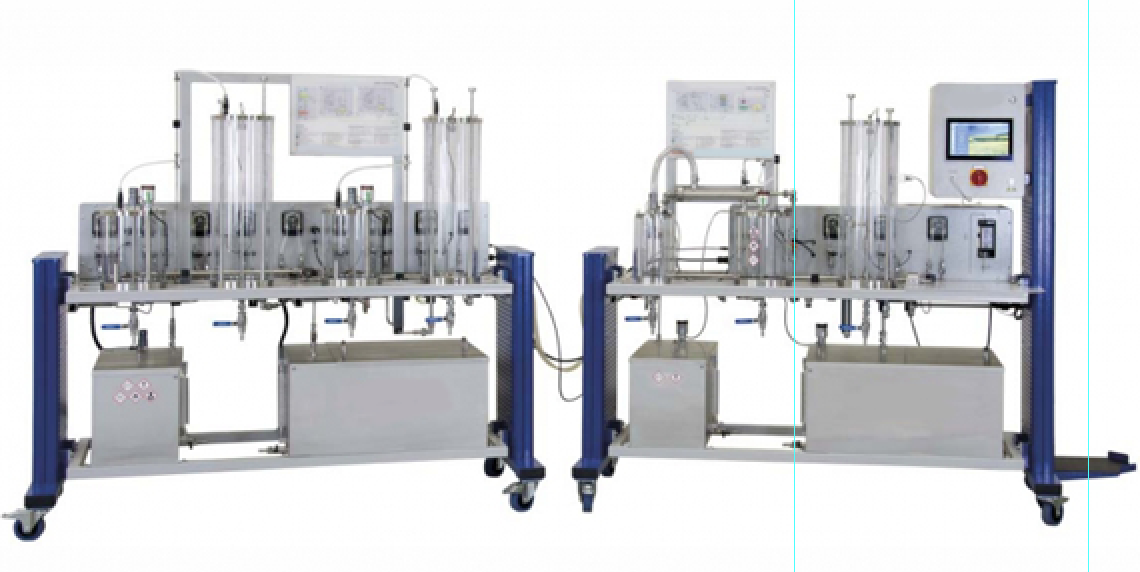
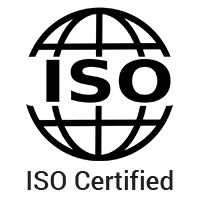



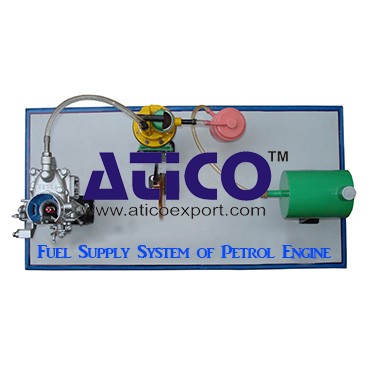
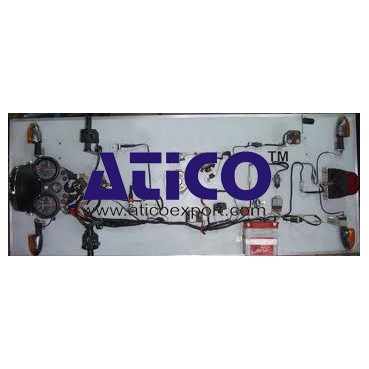
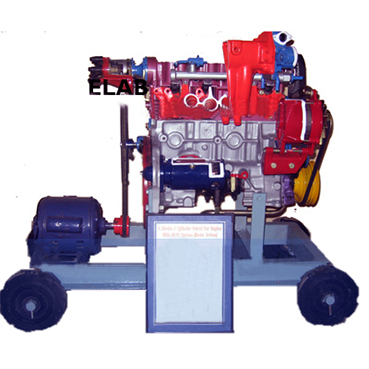
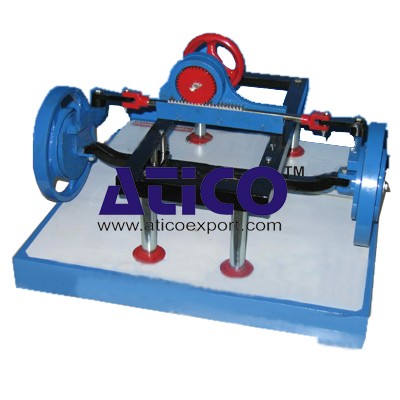
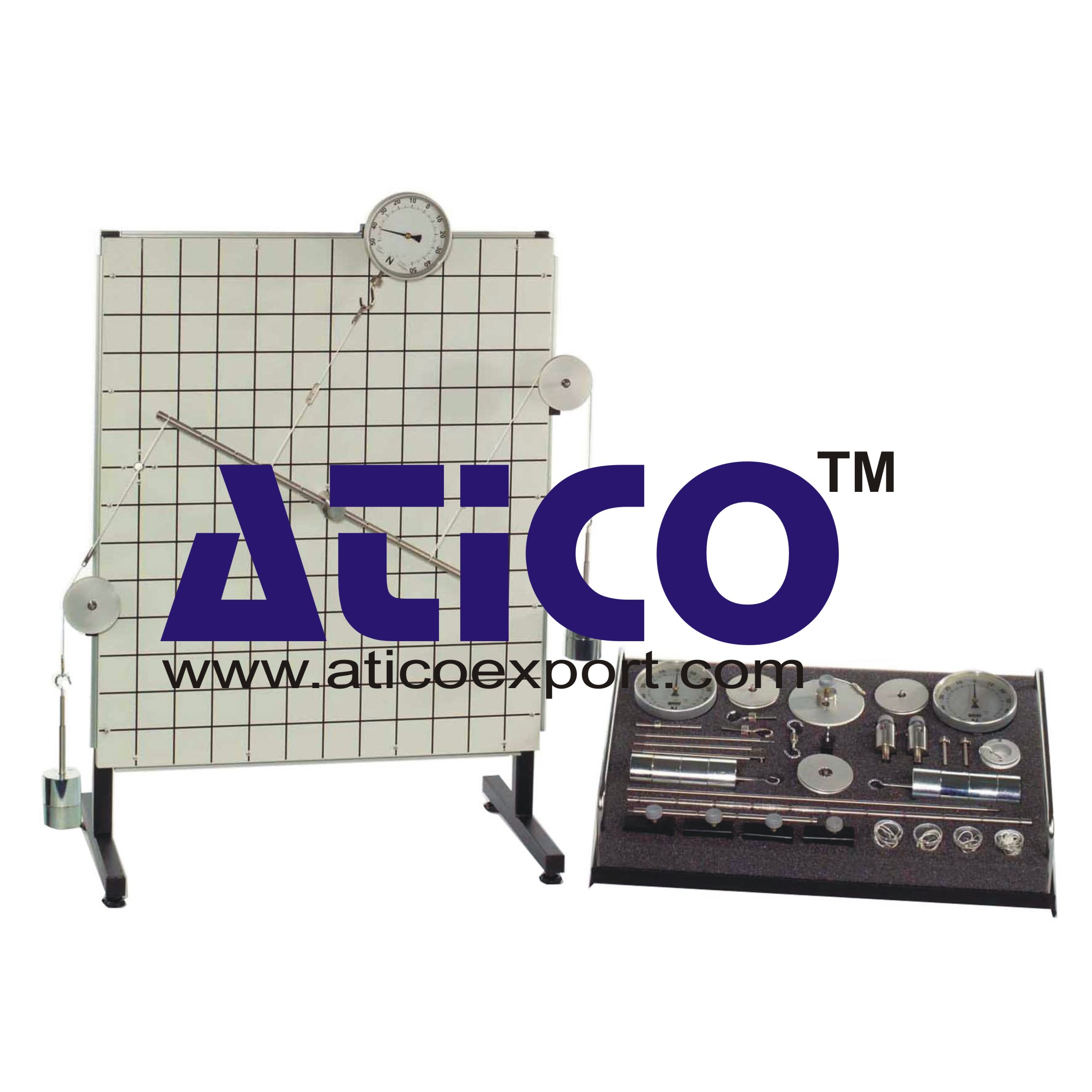
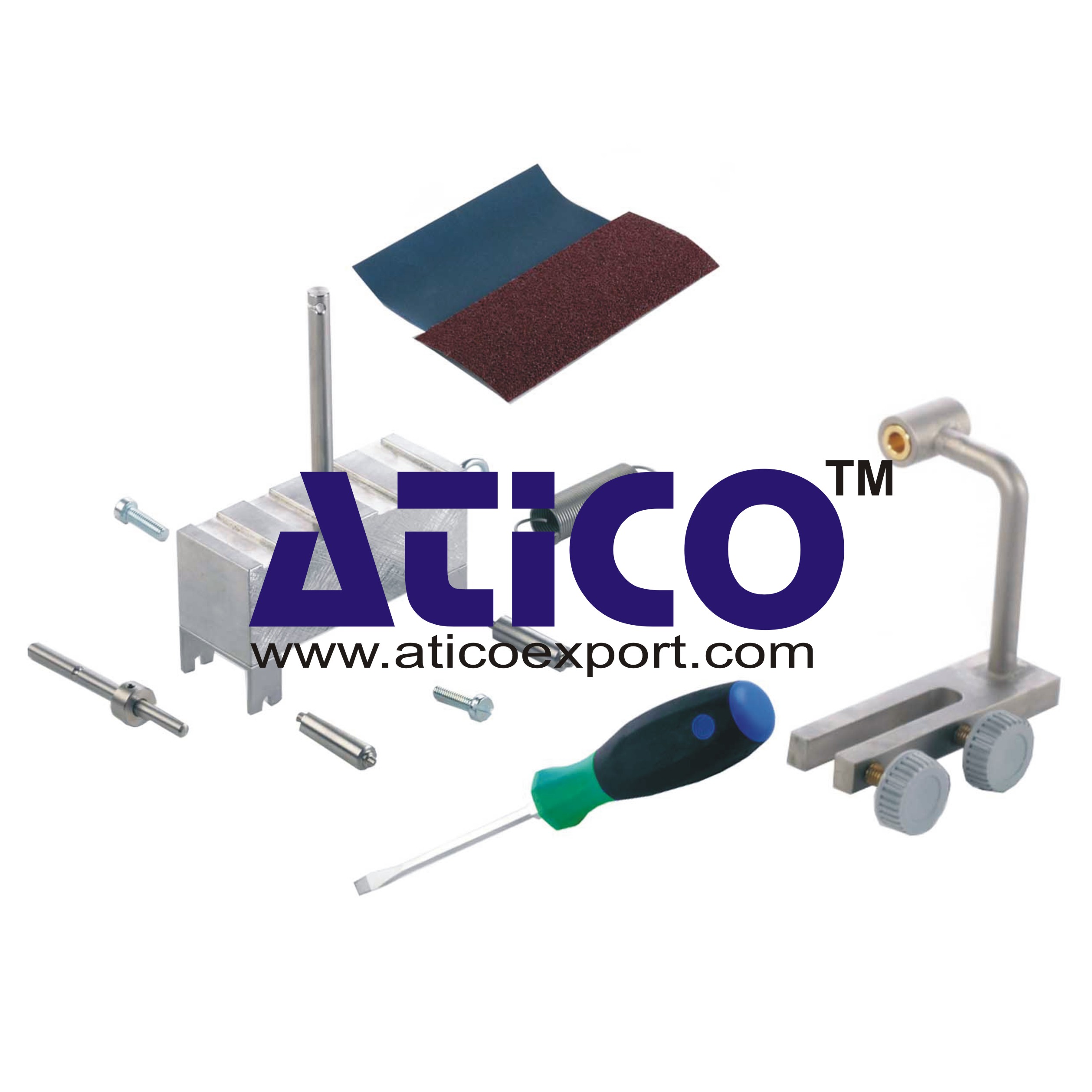
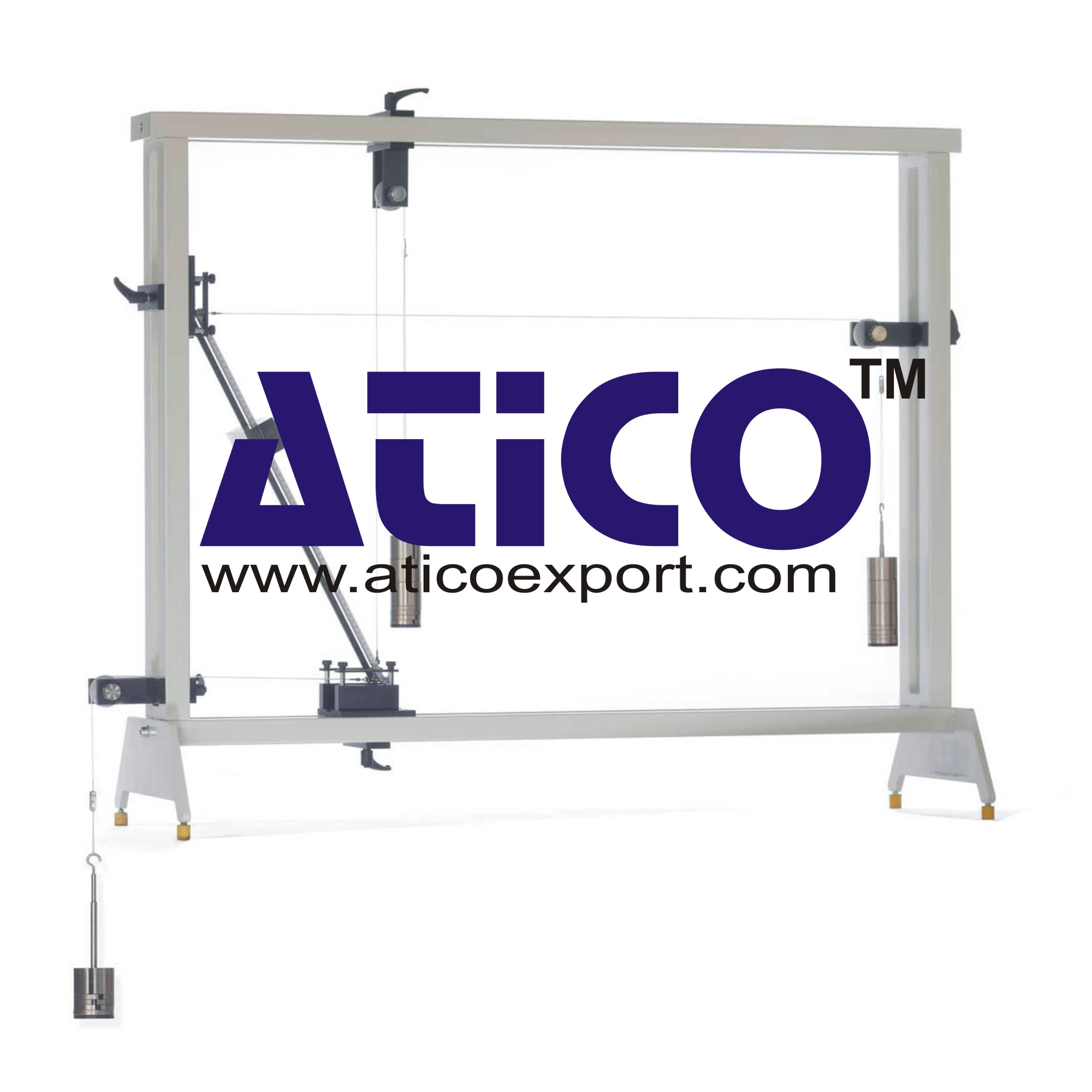
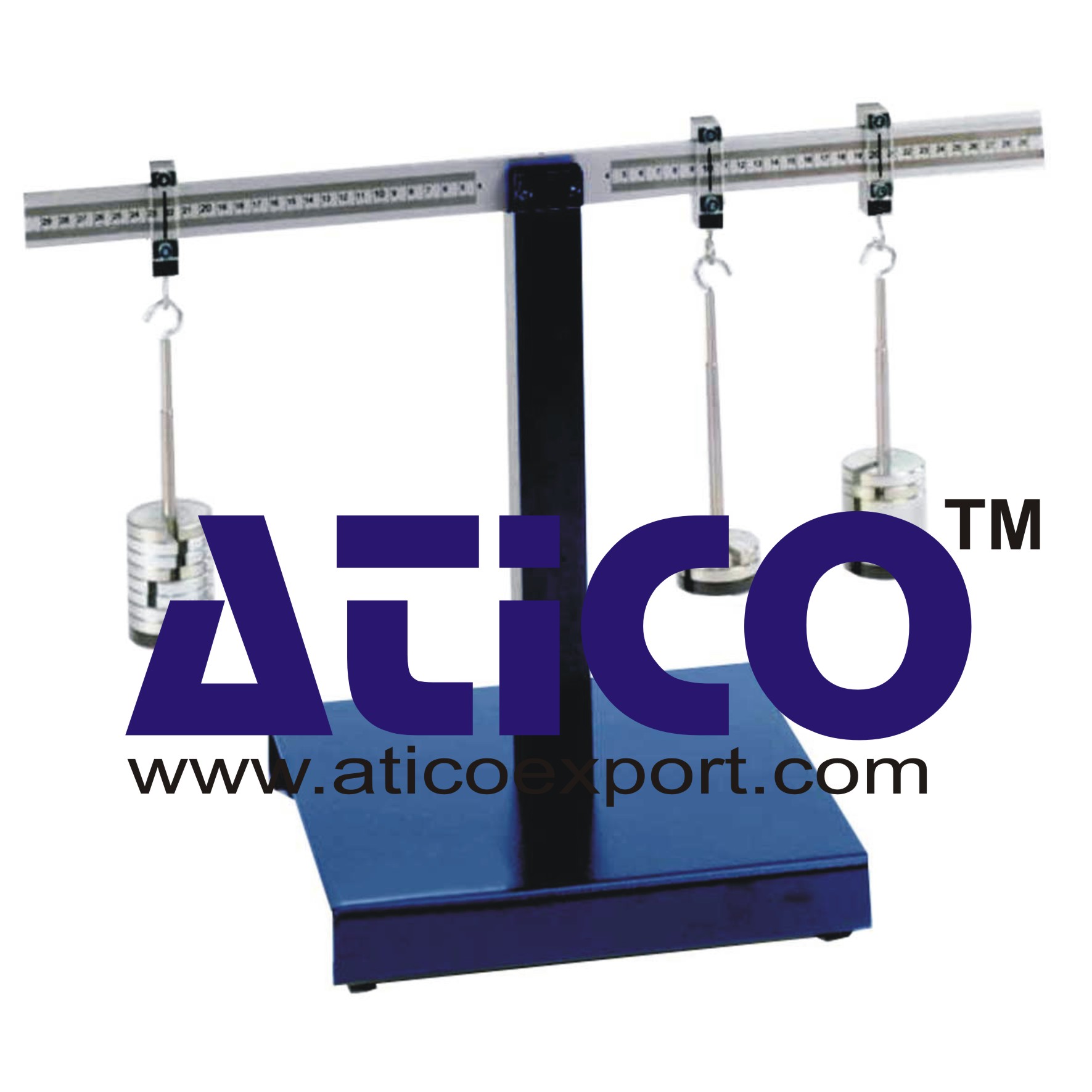
Product
Reviews
add Review
reviews
No Review Yet.